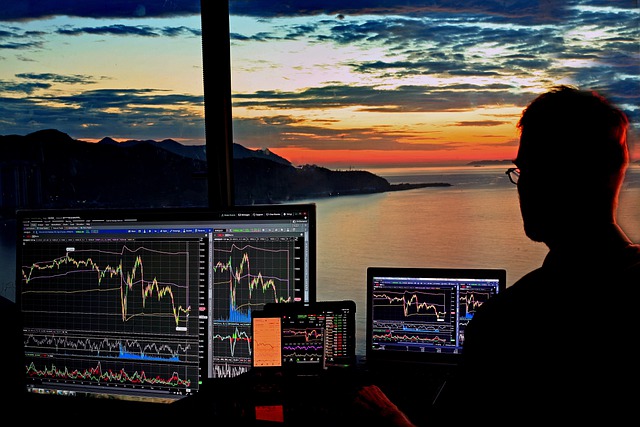The rapid technological development of the last decades has changed the world in which we live. Accordingly, the stock markets have also adapted to the new technological possibilities.
Floor trading is increasingly being replaced by electronic trading systems. Algorithms are intended to increase trading efficiency and make new forms of trading possible in the first place, such as high-frequency trading. The use of new technologies results in new potentials but also unknown risks. Electronic trading systems are not yet fully developed, as the stock market crash on “Black Monday” in 1987 showed.
Nonetheless, here are a few advantages of electronic trading systems:
- Automation: Automation of order entry, routing, and pricing.
- Overcoming distance: Easier access to exchanges, also possible over long distances.
- Efficiency and costs: Increase efficiency while reducing costs.
- Trading Surveillance: Systematic monitoring of trading by trading surveillance.
Before we dive more into the impact of technology on the stock market, we will briefly discuss why investing in technology stocks such as the ones from Johannesburg Stock Exchange can be rewarding for African traders. This is a list of the Technology stocks of the JSE.
Why invest in technology stocks?
Tech stocks are typically growth stocks, still growing at an above-average rate. Therefore, these companies focus on further increasing sales and opening new markets.
It can often be observed that profits do not grow in step with sales. In the early days, this is mainly because most of the capital flows directly into the development of new markets and the further development of new products.
As such, it’s normal for tech stocks to pay no dividends or a very low dividend.
From the floor exchange to the computer exchange
The floor market, known from Oliver Stone’s film classic “Wall Street” (1987), is dying out. Floor trading, where hundreds of traders stand in the trading zone with slips of paper in hand and shout offers to one another, has become a rarity. Today, computers coordinate supply and demand. In Germany, for example, Floor trading on the Frankfurt Stock Exchange was discontinued entirely in May 2011. Likewise, stock exchanges are gradually disappearing and being replaced by computer exchanges worldwide.
Computer systems process information faster, make decisions and act within fractions of a second. As a result, the computer has gradually replaced the experienced stock exchange trader. In addition, the computer systems collected and processed data that used to be diligently researched in just a few seconds, which has primarily made trading faster.
High-Frequency Trading
High-frequency trading is a product of the stock exchange’s computerization. Intelligent algorithms enable high-performance computers to act in a few microseconds. They react to the slightest changes in the market and then make trading decisions based on the information.
However, high-frequency trading is repeatedly the subject of criticism. The risks of computer-aided trading are particularly evident in economic crises, such as the 2009 financial crisis. Moreover, in the course of high-frequency trading, illegal practices have also established themselves, which the supervisory authorities cannot, or only with great difficulty, detect due to the speed and the sheer quantity. Some critics even go so far as to say that high-frequency trading does not benefit the real economy. Therefore, calls for a ban on high-frequency trading are also growing louder.
Financial market stability
Computer systems and algorithms are supposed to make trading safer and more predictable. This is because they act according to clearly measurable parameters, never make emotional decisions and thus minimize the risk for traders. On Black Monday (10/19/1987), for example, the “if-then” algorithms led to a crash. Algorithms also played an essential role during the 2009 financial crisis. Algorithms generally increase financial market stability, but in extreme cases, such as the bankruptcy of Lehman Brothers, the algorithms can also trigger a rapid crash (flash crash).
Institutional investors, such as pension funds use programs to buy and sell shares. As a result, there are always sudden purchases and sales of large quantities due to the algorithm’s parameters. This can panic traders as the reasons behind this trade are not obvious.
New technologies make trading on the stock exchange more efficient. The free availability of information within fractions of a second has permanently changed the work of dealers. Gathering information, formerly the core competency of every stock trader, has become less critical. Instead, electronic trading systems obtain and process information without human intervention. This increases efficiency but, at the same time, increases the risk of sudden price collapses.













